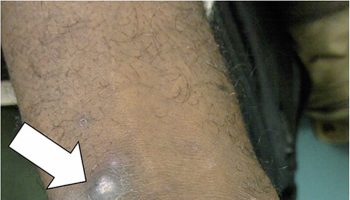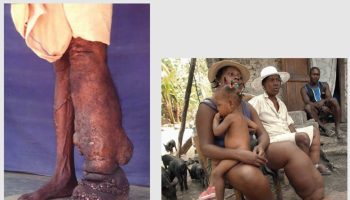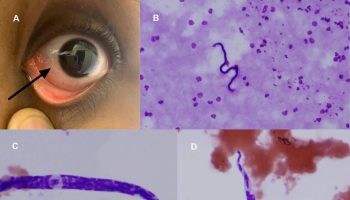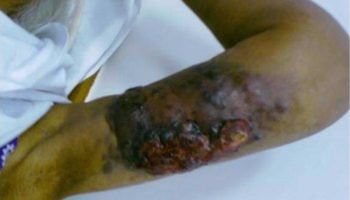Contents
What is Kleine Levin syndrome
Kleine Levin syndrome is a rare and complex neurological disorder characterized by recurrent episodes of excessive sleep (hypersomnia), excessive food intake (compulsive hyperphagia), behavioral changes such as an abnormally uninhibited sexual drive along with reduced understanding of the world where the patient becomes progressively drowsy and sleeps for most of the day and night, sometimes waking only to eat or use the bathroom. Affected individuals may sleep for up to 20 hours per day during an episode. These episodes usually last for a few days to a few weeks. An episode may start abruptly and is sometimes preceded by an upper-respiratory-type infection. During an episode, people with Kleine Levin syndrome can also display abnormal behavior, such as excessive food intake (hyperphagia), irritability, childishness, disorientation, hallucinations, and an abnormally uninhibited sex drive. Affected individuals are symptom-free between episodes. The time between episodes varies. An affected individual may go for weeks or months without experiencing symptoms. When present, episodes may persist for days to weeks. In some cases, the symptoms associated with Kleine-Levin syndrome eventually disappear with advancing age. However, episodes may recur later during life.
When awake, affected individuals may exhibit irritability, lack of energy (lethargy), and/or lack of emotions (apathy). They may also appear confused (disoriented) and experience hallucinations.
Kleine Levin syndrome primarily affects adolescent males, usually around the age of 16 years, but it also affects females and individuals of other ages. Males appear to be affected three times as often as females (Male 3:Female 1). On average, women had a longer disease course than men.
The underlying cause of Kleine Levin syndrome is unknown. However, researchers believe that in some cases, hereditary factors may cause some individuals to have a genetic predisposition to developing the disorder. It is thought that symptoms of Kleine-Levin syndrome may be related to malfunction of the portion of the brain that helps to regulate functions such as sleep, appetite, and body temperature (hypothalamus). Some researchers speculate that Kleine-Levin syndrome may be an autoimmune disorder.
Kleine Levin syndrome is extremely rare, estimated at 1-2 cases per million people. More than 500 Kleine Levin syndrome cases have been reported in the medical literature. However, because cases of Kleine-Levin syndrome often go unrecognized, the disorder is under-diagnosed, making it difficult to determine its true frequency in the general population.
There are no consistently effective therapies, although stimulants (modafinil, methylphenidate, amphetamine) and mood stabilizers (lithium) may be prescribed with varying results 1.
Related disorders
Symptoms of the following disorders can be similar to those of Kleine-Levin syndrome. Comparisons may be useful for a differential diagnosis:
Narcolepsy is a sleep disorder characterized by abnormal sleepiness during the day, sudden extreme muscle weakness (cataplexy), hallucinations, paralysis while sleeping, and disrupted sleep during the night. Excessive daytime sleepiness is usually the first symptom of narcolepsy. People with narcolepsy may also experience lack of energy (lethargy), an irresistible urge to sleep (“sleep attack”), and/or an inability to resist sleep. The symptoms of narcolepsy generally begin between the ages of 10 to 20 years. The exact cause of narcolepsy is not known.
Numerous disorders in addition to narcolepsy are involved with disturbed sleeping patterns. A partial list of these disorders includes cataplexy, sleep apnea, delayed sleep phase syndrome, excessive daytime sleepiness, and African sleeping sickness. A recently described disorder known as idiopathic hypersomnia is characterized by excessive sleepiness (hypersomnia) that occurs for unknown reasons (idiopathic).
The following disorder may be associated with Kleine-Levin syndrome as secondary a characteristic. It is not necessary for a differential diagnosis:
- Depression is a common psychiatric disorder characterized by prolonged feelings of profound sadness, unhappiness, and discouragement. Affected individuals may be irritable, have difficulty concentrating, and/or experience confusion and/or hallucinations. Some affected individuals may also experience extremes in eating behaviors: they may refuse to eat or may eat enormous amounts of food. In addition, affected individuals may sleep excessively or may be unable to sleep (insomnia). Some researchers believe that depression may be caused by a variety of factors, including diet, family history, and the interaction of many genes (polygenic inheritance), possibly in combination with environmental factors (multifactorial inheritance).
Kleine Levin syndrome facts
There is no known cure or effective treatment for Kleine Levin syndrome. Kleine Levin syndrome episodes may continue for 10 years or more, but episodes of Kleine Levin syndrome stop occurring in many patients by the time they are 30 years old.
In addition to excessive sleep, a Kleine-Levin Syndrome (Kleine Levin syndrome) patient’s whole demeanor is changed, often appearing “spacey” or childlike. When awake the patient experiences confusion, disorientation, complete lack of energy (lethargy), and lack of emotions (apathy). Most patients report that everything seems out of focus, and that they are hypersensitive to noise and light. In some cases, food cravings (compulsive hyperphagia) are exhibited. Instances of uninhibited hyper-sexuality during an episode have also been reported.
Kleine-Levin Syndrome episodes are cyclical. When present, Kleine Levin syndrome symptoms persist for days, weeks or even months, during which time all normal daily activities stop. Individuals are not able to attend school, work or care for themselves. Most are bedridden, tired and uncommunicative even when awake. Not everyone affected by Kleine Levin syndrome exhibits all of the symptoms described above.
Affected individuals may go for a period of weeks, months or even years without experiencing any symptoms, and then symptoms reappear with little warning. In between episodes, those diagnosed with Kleine Levin syndrome appear to be in perfect health with no evidence of behavioral or physical dysfunction. However they function daily with the frightful reality that they could become sick again at any moment. Kleine Levin syndrome episodes may continue to reoccur for a decade or longer with devastating effects on the adolescent’s life and family.
The mean diagnostic delay for proper Kleine-Levin Syndrome diagnosis is four years. This means that it takes the average Kleine Levin syndrome patient four years before receiving an accurate diagnosis causing undue suffering to patients and families. The cause of Kleine-Levin Syndrome is not known.
Kleine Levin syndrome symptoms checker
Kleine Levin syndrome patient would have symptom A, one or more of the B symptoms, and the pattern described in C.
A. Recurrent episodes of severe hypersomnia (2-31 days)
B. Plus one or more of the associated features :
- Cognitive abnormalities such as feeling of unreality, confusion, hallucinations.
- Abnormal behavior such as irritability, aggression, odd behavior
- Binge eating
- Hyper-sexuality
C. Interspersed with long periods of normal sleep, cognition, behavior, mood
Is Kleine-Levin Syndrome an autoimmune disease?
In Kleine Levin syndrome, the association of an infection before the onset of a disease, a young age at onset, a recurrence of symptoms and possible genetic predisposition is suggestive of an autoimmune disease. Various autoimmune diseases are tightly linked to a specific human leukocyte antigen (HLA) typing (this is a group that is not, like group A, B, O, on our red cells, but on our white cells). The immune system indeed distinguishes self-antigens from foreign antigens through the cell surface expression of the highly polymorphic HLA glycoprotein antigens. The HLA system (allele HLA-DQB1*0602) is highly associated with another sleep disorder, narcolepsy. It has been poorly studied in Kleine Levin syndrome patients, but a recent study in Europe yielded a higher than controls frequency of the HLA-DQB1*201 allele in 30 Kleine Levin syndrome patients, a group that has been associated with various autoimmune diseases. It is now necessary to extend and specify the measure to a much larger number of patients and families.
Strong evidence for an autoimmune basis in Kleine Levin syndrome could potentially lead to the testing of drugs or therapy aimed at reducing autoimmunity, which have not been yet, to our knowledge, tested in Kleine Levin syndrome. This is of particular interest in that severe disease where effective treatment is desperately missing. In addition, the questionnaire will provide the first large survey of the disease and its symptoms. It will also, when compared to questionnaires completed by non-affected healthy subjects, help identify commonalities between patients.
Kleine Levin syndrome causes
The exact cause of Kleine-Levin syndrome is unknown. It is speculated that symptoms may develop due to malfunction or damage to the portion of the brain that helps to regulate functions such as sleep, appetite, and body temperature (hypothalamus). As with most diseases with no known cause, some researchers have speculated that, in some cases, symptoms may develop as a result of a head injury or an infectious disease affecting the hypothalamus; however, this is unproven.
In some cases, the development of Kleine-Levin syndrome follows a flu-like illness indicating an infection leading some researchers to speculate that an underlying autoimmune process may play a role in the development of the disorder. Autoimmune disorders are caused when the body’s natural defenses against “foreign” or invading organisms (e.g., antibodies) begin to attack healthy tissue for unknown reasons. A Stanford University study in 2005 determined that 72 percent of the cases studied were preceded by symptoms of infection.
In extremely rare cases, more than one family member has been affected (familial Kleine-Levin syndrome). These rare cases and the possible role of infection in the development of Kleine-Levin syndrome suggest that genetic factors may cause some individuals to have a predisposition to developing the disorder.
Kleine Levin syndrome symptoms
Kleine-Levin syndrome is an extremely rare disorder characterized by the need for excessive amounts of sleep (hypersomnolence), excessive eating (compulsive hyperphagia), and behavioral abnormalities.
Onset of symptoms associated with this disorder is extremely rapid. Such symptoms may persist for days to weeks. Affected individuals may have approximately two to 12 episodes per year. In most cases, no symptoms of Kleine-Levin syndrome are exhibited between episodes. Episodes become less frequent with age and may eventually disappear (spontaneous remission). However, episodes have been reported to occur in individuals well into the fourth and fifth decades of life.
Individuals with Kleine-Levin syndrome may sleep for 18 to 20 hours per day and wake only to eat, urinate, and defecate. Although affected individuals can be awakened, they may be irritable or listless (lethargic) and/or lack emotion (apathy). They may also appear confused (disoriented), or have difficulties speaking such as slurred speech. In some cases, affected individuals may experience hallucinations or sense of distorted reality in which they feel detached from their surroundings or have disconnected thinking.
In addition, individuals with Kleine-Levin syndrome may have an uncontrollable urge to eat excessively (compulsive hyperphagia). Affected individuals generally do not complain of being excessively hungry but will typically consume available food, regardless of the food’s condition, quality, or appeal to their preferences. Most individuals with Kleine-Levin syndrome may experience weight gain associated with episodes of compulsive hyperphagia.
In some cases, individuals with Kleine-Levin syndrome also exhibit an abnormal sexual drive. They may be sexually uninhibited or have an abnormally increased sex drive (hypersexuality). In addition, in some cases, episodes of Kleine-Levin syndrome may be characterized by other behavioral abnormalities such as memory problems, inattentiveness, absentmindedness, and/or difficulties with concentration. Some affected individuals may show signs of depression, aggression, and/or anxiety.
Table 1. Kleine-Levin syndrome symptoms
[Source 2 ]Kleine Levin syndrome treatment
Kleine-Levin syndrome may be suspected based upon a thorough clinical evaluation and a detailed patient history. Kleine-Levin syndrome may be confirmed based upon excessive sleep requirements (hypersomnolence); the desire to eat all available food (compulsive hyperphagia); and hypersexuality. Certain medical tests may be performed to rule out other conditions such as epilepsy, brain lesions, meningitis or encephalitis.
The treatment of Kleine-Levin syndrome is directed toward the specific symptoms that are apparent in each individual. Treatment may require the coordinated efforts of a team of specialists. Pediatricians, psychiatrists, psychologists, neurologists, and other health care professionals may need to systematically and comprehensively plan an affected adolescent’s treatment.
Specific therapies for the treatment of Kleine-Levin syndrome are symptomatic and supportive. In some cases, stimulants may provide temporary relief from the need for excessive amounts of sleep. Amphetamines were most successful in reducing sleepiness in affected individuals, but had no effect on other associated symptoms (e.g., behavioral changes).
Investigational Therapies
In some cases, individuals with Kleine-Levin syndrome have appeared to respond to treatment with phenytoin, an anticonvulsant drug used to treat epilepsy. In another case reported in the medical literature, an affected individual was treated with the combination of an antidepressant and the drug carbamazepine. More research is needed to determine the long-term safety and effectiveness of these drugs for the treatment of Kleine-Levin syndrome.
Lithium, a drug used to treat serious mood disorders (affective) disorders, has been effective in some cases. One report detailed five adolescents with Kleine-Levin syndrome who received treatment with lithium. Episodes of excessive sleep were shortened by treatment with lithium and no behavioral symptoms were present. All five adolescents had relapses while on lithium treatment. More research is necessary to determine the long-term safety and effectiveness of lithium as a treatment option for individuals with Kleine-Levin syndrome.
Researchers at the Stanford University Center for Narcolepsy will be conducting a study on Kleine-Levin syndrome. The study is designed to measure the HLA group and possible other genetic factors predisposing to Kleine-Levin syndrome in all (200 cases are planned) volunteers KLS patients, their parents (50 pairs of parents are planed), and compare it to the HLA group in age, sex and ethnic-matched controls (200 cases are planed). The study includes questionnaire and blood sampling. For more information on this study, contact:
- Stanford University Center for Narcolepsy (https://med.stanford.edu/narcolepsy/KLS.html)
Kleine Levin syndrome prognosis
Episodes eventually decrease in frequency and intensity over the course of eight to 12 years.
- Afolabi-Brown O, Mason TB. Kleine-Levin Syndrome. Paediatr Respir Rev. Dec 23, 2016; https://www.ncbi.nlm.nih.gov/pubmed/28216256[↩]
- Kleine–Levin Syndrome: A Systematic Studyof 108 Patients. Ann Neurol 2008;63:482– 492 http://med.stanford.edu/content/dam/sm/psychiatry/documents/narcolepsy/publications/Kleine%E2%80%93Levin_Syndrome-A_Systematic_Study_of_108_Patients.pdf[↩]





